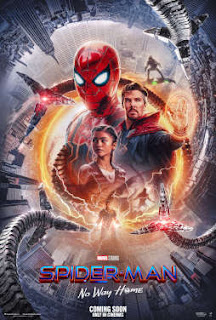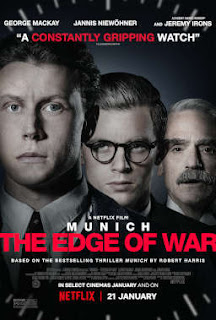I've just watched Bradley Wiggins become the first British rider to win the Tour de France, the world's most gruelling bicycle race covering 4,000km over 21 days. Congratulations to Bradley and all the other members of team SKY who helped make this possible.
 |
| Bradley Wiggins leads out Mark Cavendish during the final lap of stage 20 of the 2012 Tour de France |
What has this got to do with roleplay you ask, "plot and decoration" I say, and an excuse for a rambly article about sports in RPGs.
Sporting events have featured throughout all the ages of history in some
form or another and there's no reason why they cannot be incorporated
into any RPG scenario when the PCs enter a new town or village.
Medieval Sports
Victorians are often credited with inventing "leisure time" but it
is estimated that medieval peasants had up to 8 weeks holiday a year,
during which they engaged in a range of games and sporting activities
such as:
Archery - In "The Assize of Arms" of 1252, King Henry III, mandated that every Englishman between the ages of 15 to 60 equipped themselves with a bow and arrows. In 1363, Edward III, Passed the Archery Law obliging all Englishmen to practise with their longbow every Sunday and holiday. Needless to say archery competitions were very popular and should be a staple of any pseudo medieval fantasy game.
Bowls - Medieval bowls was a simple game of throwing a ball at a target, this illustration from the Bodliean library, shows a group of peasants taking turns throwing a bowl at a feather stuck in the ground. So popular was the game that In 1366 Edward III outlawed it as it had become a distraction from Archery practise. Edward IV issued a similar edict in 1477 against a range of pastimes such as "bowles, closh, kayles, hand-in and hand-out".
 |
| Feather-bowling (Bodleian Library, Oxford, Ms. Douce, 275, f. r12)
|
Boxing - Traces its origins to the Pankration of Ancient Greece where early pugilists wrapped their hands with leather thongs leaving their fingers free. Romany Gypsies often resolve family disputes in bouts of bare knuckle fighting and there is no reason why these should not feature in the arsenal of every DM either to prove a PCs mettle or just to earn a few silver pieces when the times get tough.
Colf - The game of Golf has its origins in a much simpler version where contestants tried to hit a ball at a target such as a tree, with a wooden club. The winner being the player who hit the target in the least number of strikes.
Gameball - Many games are considered to be the progenitor of football, but my favourite example is that of gameball and the report of a match played in the village of Ulgham, Northumberland in 1280, which resulted in a player being killed after running onto an opponents dagger. Sounds more like Bloodbowl than football to me and could be a great opener for a murderous plot..
 |
| Henry VIII throwing a sledge hammer |
Hammer-Throwing - This olympic event can trace its origins all the way back to the Tailteann games held in Ireland in 1829 BC. Even the young Henry VIII is said to have enjoyed the sport. I expect that every Dwarf in the Known (and unknown) Kingdoms to have a penchant for this sport.
Hurling or Shinty - Another Gaelic sport which can trace its origins back 3000 years.
Horseshoes - Given that every village worth its salt would have at least two things, an Inn and a Blacksmith, it's inevitable that someone would invent a game which involved throwing old horseshoes at a target.
Horse Racing - The chariot races of ancient Rome had long since died out and by the Middle Ages, equestrian sport was largely confined to using horses in jousting tournaments, although I find it hard to believe that races between bored rich nobles did not take place in Medieval England. However, on the continent the
Palio di Sienna can trace its origins back to 1590 when the then Grand Duke of Tuscany outlawed bull fighting and so the population took to racing buffalo and donkeys around the piazza. Those crazy europeans...
 |
| Palio di Sienna |
Jousting Tournaments - The joust has its origins in the Gladiatrial Arenas of Rome, the word joust is actually derived from the Latin 'Juxtare' (to meet together). By the Middle Ages these had formalised into one of two forms, the
Joust a Plaisance, an organised tournament taking place over several days with several elimination rounds or the
Pas d'armes, where a Knight would advertise for combatants from the local area and then take on all challengers at once in a single bout. Could your Knight or Paladin resist the temptation to sign up if they found one of these adverts nailed to a tree?
Quarter-staff Contests - The Robin Hood vs Little John duel is probably the most famous example of a quarter-staff contest in popular culture. The rules for such contests are unknown but by Elizabethan times these had evolved into a contest between two people similar to fencing. Examples of a range of polearm fighting techniques are graphically illustrated in the 1459 Fechtbücher (literally Fight Book) "Alte Armatur und Ringkunst" written by the fencing master Hans Talhoffer (
An online version of the which is available courtesy of the Royal Library, Copenhagen).
Skittles - The ancestor of modern ten-pin bowling which shares its origins with bowls and other ground billiards games. An example of a skittles set was found in the tomb of an Egyptian child dating from 2000BC. In England this was mostly an indoor game played in a wood or clay floored alley with many local rule variations. For bored PCs what else is there to do in a tavern when you don't feel like quaffing or listening to that rubbish bard?
Stoolball - An ancestor of Cricket, originally played between two "wickets" made from the seats of stools hung from trees or fixed to poles approximately 16 feet apart. The object of the game was for the bowler to attempt to hit the stool whilst the batter defended with a paddle shaped bat scoring a point for each delivery defended. A game which has clearly stood the test of time, as
a formalised version is still played today.
 |
| A game of medieval Stoolball |
Wrestling - One of history's most ancient sporting contests which needs little explanation.
The Challenge of Champions
The Challenge of Champions series of scenarios (published in Dungeon issues #58, #69, #80, #91, #108 and #138) by Jonathan M Richards pits a party of 4 players against a series of D&D puzzles with specific challenges for fighter, priest, wizard and thief classes. They are a lot of fun for the players and can be a great way to put a party of disparate PCs together at the start of a game.














